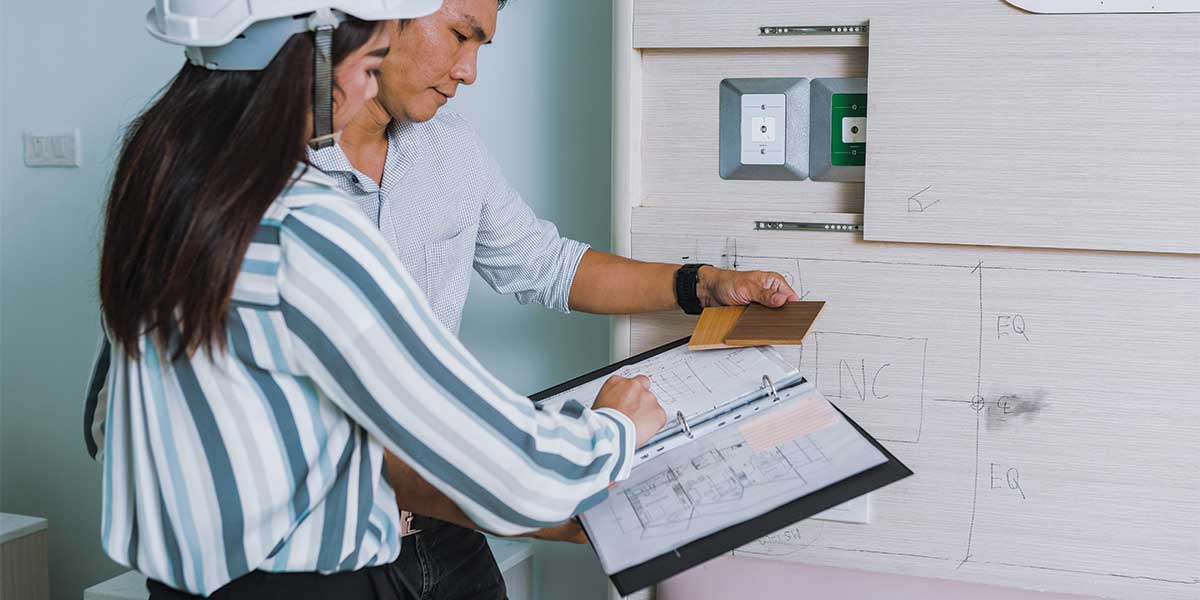Electrical inspections are a crucial step when applying for or renewing an insurance policy. Insurance providers often require a professional electrical insurance inspection to verify that your wiring, panels, outlets, and safety devices meet current safety standards. While some homeowners or business owners may feel anxious about this process, proper preparation can make it smooth, efficient, and stress-free.
At Expert Electric, we specialize in guiding property owners through the electrical insurance inspection process. Our goal is to minimize disruptions, identify safety hazards before they become problems, and help you achieve insurance compliance with confidence. With our experienced electricians, you can rest assured that your home or business will be inspected thoroughly and professionally.
Why Electrical Insurance Inspections Are Important
Insurance companies require inspections because faulty or outdated electrical systems are among the leading causes of fires and costly claims. An inspection ensures:
-
Safety – Verifying your wiring, outlets, and panels meet Canadian Electrical Code standards.
-
Reliability – Identifying hidden issues that may cause power failures or hazards.
-
Insurance Approval – Meeting insurer requirements so your policy is valid and claim-ready.
-
Cost Savings – A properly maintained system may lower premiums and reduce the risk of expensive repairs.
Skipping or neglecting an inspection can leave you vulnerable to denied claims, higher premiums, or even policy cancellations. That’s why preparing in advance is key.
For more insights on how home insurance works and what you need before an electrical insurance inspection, check out the Insurance Bureau of Canada’s guide on How Home Insurance Works.
Steps to Prepare for an Electrical Insurance Inspection
Proper preparation doesn’t just save time, it also increases the likelihood of passing your electrical insurance inspection on the first attempt. Here’s a detailed checklist to help you get ready:
1. Communicate with Your Electrician
Before the inspection, schedule a consultation with your electrician. Discuss:
-
Known issues with your electrical system.
-
Specific insurer requirements.
-
Areas that might need attention, such as outdated panels or overloaded circuits.
Providing your electrician with past maintenance logs, repair receipts, or permits helps them evaluate your system’s history and condition more accurately.
2. Ensure Accessibility to Electrical Systems
Inspectors need clear access to:
-
The main breaker panel.
-
Electrical meters.
-
Outlets, switches, and visible wiring.
-
Fuse boxes (if applicable).
Remove clutter, storage boxes, or furniture blocking access. Adequate lighting also helps speed up the process. Accessibility not only ensures efficiency but also demonstrates responsibility to the inspector.
3. Check Cord and Outlet Safety
One of the most common red flags during inspections is improper use of cords and outlets. To prepare:
-
Use extension cords only for temporary needs.
-
Avoid overloading outlets and power bars.
-
Replace damaged or frayed cords immediately.
-
Never run cords under carpets, rugs, or through walls.
These small adjustments greatly reduce fire risk and improve inspection outcomes.
4. Update Your Safety Equipment
Your inspection will likely include checking:
-
Smoke alarms – Ensure they work and are placed on every level of your home or business.
-
Carbon monoxide detectors – Required near sleeping areas.
-
Fire extinguishers – Verify they are functional and accessible.
Outdated or missing safety equipment can delay inspection approval. A quick check before the inspector arrives can save valuable time.
5. Label Circuits and Breakers
A clearly labeled electrical panel makes it easier for inspectors to confirm safety and compliance. Label each breaker to show which room or appliance it controls. This simple step not only helps during inspections but also benefits you during emergencies.
6. Address Known Issues in Advance
If you’re aware of flickering lights, tripped breakers, or burnt outlets, don’t wait for the inspector to point them out. Addressing issues before the inspection shows diligence and can prevent costly re-inspection fees.
7. Gather Documentation
Keep all relevant paperwork ready, such as:
-
Previous inspection reports.
-
Permits for electrical work.
-
Warranty information on electrical panels or major upgrades.
Documentation helps demonstrate compliance and may reduce the inspector’s workload.

Common Issues Found During Electrical Insurance Inspections
Knowing what inspectors typically flag can help you prepare better:
- Outdated wiring – Knob-and-tube or aluminum wiring often fails inspections.
- Overloaded circuits – Too many appliances on one circuit.
- Old panels – Panels with fuses or outdated breakers may require replacement.
- Missing GFCI outlets – Especially in bathrooms, kitchens, and outdoor areas.
- Improper grounding – A lack of proper grounding can pose a significant fire hazard.
Addressing these issues ahead of time boosts your chances of a clean inspection report.
How Expert Electric Makes the Process Easy
At Expert Electric, we believe an electrical insurance inspection doesn’t have to be stressful. Here’s what sets us apart:
-
Professional Expertise – Our electricians are licensed, insured, and experienced in Canadian safety standards.
-
Efficiency – We minimize disruption to your daily routine.
-
Clear Communication – We explain findings in simple terms, so you know exactly what to do.
-
Preventive Recommendations – Beyond the inspection, we advise on upgrades to future-proof your system.
With over two decades of experience in residential and commercial electrical work, Expert Electric is the trusted choice across Metro Vancouver and beyond.
FAQs About Electrical Insurance Inspections
Q1: How long does an electrical insurance inspection take?
Most inspections take between 1–3 hours, depending on property size and complexity. Larger commercial properties may take longer.
Q2: Do I need to be present during the inspection?
Yes, it’s recommended. Being present allows you to answer questions and provide documentation if needed.
Q3: Will I automatically fail if my home has older wiring?
Not always. Some insurers may accept older wiring if it’s safe and properly maintained, but others may require upgrades before approving coverage.
Q4: How often should I get an inspection?
Even if not required by your insurer, experts recommend inspections every 3–5 years for residential properties and every 1–3 years for commercial spaces.
Q5: Can an inspection lower my insurance premium?
Yes. A safe, up-to-date system may qualify you for reduced insurance rates.
Final Thought
Preparing for an electrical insurance inspection is about more than just passing, it’s about ensuring the long-term safety, reliability, and efficiency of your property’s electrical system. By following preparation tips, addressing issues in advance, and partnering with trusted professionals like Expert Electric, you can move forward with peace of mind.
Don’t let the inspection process overwhelm you. With the right preparation, it can be a straightforward step that safeguards both your property and your insurance coverage.
Contact Expert Electric
Ready to schedule your electrical insurance inspection? Our friendly, professional team is here to help.
📞 Call Us: 604-681-8338
📧 Email: info@expertelectric.ca
Trust Expert Electric for inspections, repairs, and upgrades that keep your home or business safe, compliant, and insured.


